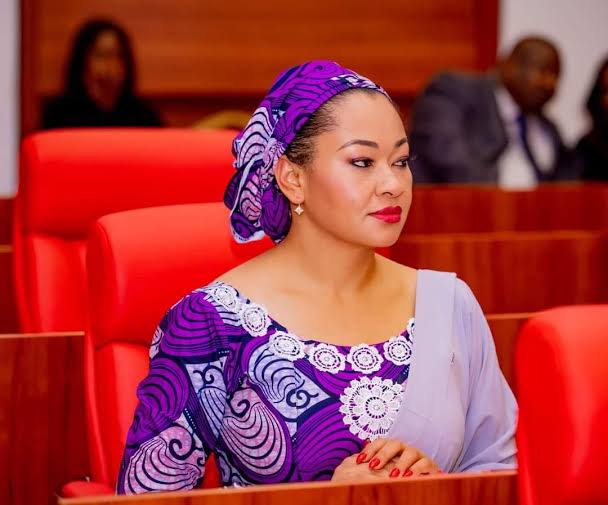The suspension of the Chief Judge of Osun State, Justice Adepele Adebola Ojo and appointment of an acting Chief Judge by the Osun State Governor, Senator Ademola Adeleke following the resolution of the House of Assembly, has sparked debates among residents and political observers in the State.
InsightMedia reported that the State Assembly recommended to the Governor, the immediate suspension of Justice Ojo, following commencement of an investigation into alleged “misconduct”.
A statement by Olamide Tiamiyu, press secretary to the Speaker, Adewale Egbedun, revealed that Ojo is expected in the House to appear before it.
Olawale Rasheed, Spokesperson to Governor Adeleke announced the appointment of Justice Olayinka Afolabi as acting Chief Judge.
Adeleke goofed?
Many social commentators have gone ahead to question the decision of the Governor to appoint an acting Chief Judge without recourse to the National Judicial Council.
Does the House have power to investigate the Chief Judge? Can an acting CJ be appointed without recourse to the NJC? Here is what the constitution says.
Section 292 deals with the removal of the Judge from office.
292 (1) says, “A judicial officer shall not be removed from his office or appointment before his age of retirement except in the following circumstances –
(a) in the case of –
(i) Chief Justice of Nigeria, President of the Court of Appeal, Chief Judge of the Federal High Court, the President of the National Industrial Court, Chief Judge of the High Court of the Federal Capital Territory, Abuja, Grand Kadi of the Sharia Court of Appeal of the Federal Capital Territory, Abuja and President, Customary Court of Appeal of the Federal Capital Territory, Abuja, by the President acting on an address supported by two-thirds majority of the Senate.
(ii) Chief Judge of a State, Grand Kadi of a Sharia Court of Appeal or President of a Customary Court of Appeal of a State, by the Governor acting on an address supported by two-thirds majority of the House of Assembly of the State, Praying that he be so removed for his inability to discharge the functions of his office or appointment (whether arising from infirmity of mind or of body) or for misconduct or contravention of the Code of Conduct;
(b) in any case, other than those to which paragraph (a) of this subsection applies, by the President or, as the case may be, the Governor acting on the recommendation of the National Judicial Council that the judicial officer be so removed for his inability to discharge the functions of his office or appointment (whether arising from infirmity of mind or of body) or for misconduct or contravention of the Code of Conduct.”
The question to be asked here is whether the House sent a written address to the Governor and if the said address has the signatures of the two-thirds majority of the House.
Efforts to reach out to the Chairman of House Committee on Judiciary, Kanmi Ajibola to confirm this failed as he promised to get back to the reporter but couldn’t. Subsequent calls to his number were not picked.
The constitution also provided for the Governor to appoint an acting Chief Judge in the case of vacancy.
Section 271 (4) reads, “If the office of Chief Judge of a State is vacant or if the person holding the office is for any person unable to perform the functions of the office, then until a person has been appointed to and has assumed the functions of that office, or until the person holding the office has resumed those functions, the Governor of the State shall appoint the most senior Judge of the High Court to perform those functions.”
Advertisement






